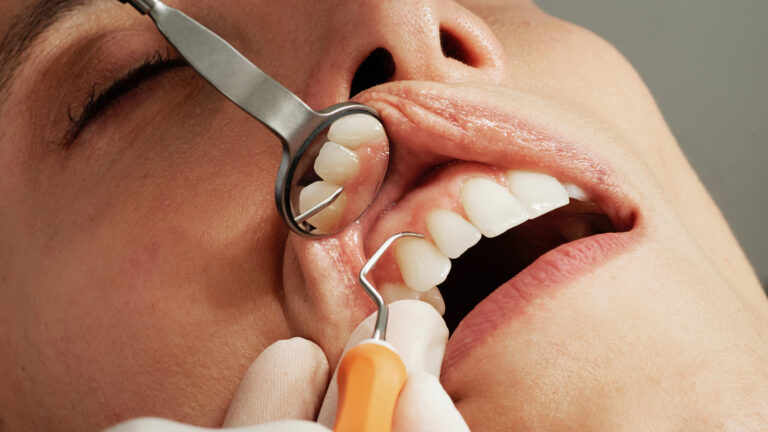Cognitive health is an integral component of comprehensive brain health, which also includes motor, emotional, and sensory functions. It is the ability to think, learn, reason, react, remember, plan, communicate, set goals, and make decisions. Cognitive health is vital for carrying out daily tasks and self-care-related responsibilities, as well as playing a major part in the brain’s ability to respond to trauma, stress, and disease.
Often, the focus on cognitive health and cognitive decline tends to be centered around the common thread of aging. And while cognitive decline and aging naturally go hand and hand, there is far more to it than just the ticking away of time.
Your cognitive health is influenced not only by age but also by lifestyle choices and environmental factors. For this reason, there are many things you can do to improve your current cognition and reduce the natural rate of decline that accompanies an aging brain.

4 Types of Cognitive Impairment
A little self-education on cognitive health can go a long way in your quest to optimize your body’s natural high-performance and healing capabilities.
“Sitting on your shoulders is the most complicated object in the known universe,” as eloquently stated by theoretical physicist Michio Kaku. “And that beautifully intricate organ is undoubtedly your most prized asset.”
However, despite being masterfully designed, your brain is not immune to damage and degeneration. The good news, though, is that there are so many simple ways to improve your cognitive health and keep your mind sharp as you progress through this glorious life you’ve been granted.
Note that not all forms of cognitive decline will fall into one of the following four types. Some cognitive impairment episodes don’t possess a concrete label but are instead marked by their symptoms and how they uniquely impact your life.
Brain Fog
If you had to guess what brain fog is, you’d probably guess right! Brain fog is a condition marked by the feeling that your cognitive functions (i.e., thinking, remembering, concentrating, performing, etc.) are operating at a below-average or subpar level. Or, in other words, your brain feels foggy, cloudy, hazy, or like it just never got out of bed on a rainy day.
Brain fog can affect your ability to process, store, and recall information, calculate and work things out, organize, problem solve, and plan. Brain fog can ultimately lead to mental fatigue and stress. A foggy brain makes it difficult to concentrate and dramatically influences your level of productivity and overall mental clarity.
Various conditions are often associated with brain fog, including but not limited to multiple sclerosis (MS), chronic fatigue syndrome (CFS), mental health disorders, Lyme disease, iron deficiency, hormonal changes, postural tachycardia syndrome (POTS), sleep apnea, obesity, certain medications, and Alzheimer’s disease. Brain fog can also result from certain lifestyle factors such as diet, stress, lack of exercise, and insufficient sleep.
As you’ll notice as we move through this comprehensive guide to cognitive health, everything is connected to the brain, and the brain is the ruler of all organs & systems.

Mild Cognitive Impairment (MCI)
Mild cognitive impairment is cognitive decline that is greater than what would be expected for an individual’s age, education level, and development. According to the Weill Institute for Neurosciences, “MCI means that cognitive declines do not affect the person’s ability to carry out everyday tasks (e.g., shopping, cooking, driving).” MCI and dementia are recognized as broad terms that only denote the severity of the cognitive impairment.
MCI is different from brain fog in that MCI can affect motor skills, personality, social behavior, hygiene, eating habits, language abilities, and sense of direction and location. Factors such as type 2 diabetes, high blood pressure, limited or no mental or physical activity, smoking, depression, and midlife obesity can increase your risk of MCI and dementia.
Dementia
So, what’s the difference between MCI and dementia? The main difference between the two is that a person with dementia has difficulty or an inability to carry out everyday tasks. Dementia is not a normal part of aging.
Subjective Cognitive Decline (SCD)
Subjective cognitive decline “is the self-reported experience of worsening or more frequent confusion and memory loss. It is a form of cognitive impairment and one of the earliest noticeable symptoms of Alzheimer’s disease and related dementias,” according to the Center for Disease Control. The CDC reports that 10.8% of adults between 45 to 64 years old have SCD, and that number increases by nearly a whole percentage among adults 65 and older.

What Are the Symptoms of Cognitive Decline?
Brain function decline can reveal itself in an array of prevalent and subtle symptoms. These symptoms can include but are not limited to chronic fatigue, depression, anxiety, headaches, sleep disorders, difficulty concentrating, forgetfulness, mild confusion, addiction, weakened immune system, widespread or localized inflammation, and a whole collection of chronic diseases and cancers.
Cognitive health decline can affect all facets of your life—your career, relationships, home life, things that bring you joy, your passions, goals, mental health, and ultimately your comprehensive health and well-being. Taking care of your brain translates into taking care of every part of you. However, caring for your cognitive health isn’t as difficult as you might think it is—and don’t worry, we’ll tell you exactly how to do just that below.
11 Causes of Cognitive Degeneration
The key to knowing how to take care of your brain and your cognitive health is knowing what factors can negatively influence it.
Aging and Cognitive Decline
There is a certain degree of natural age-associated cognitive decline as we progress through life. This is not something to fear, as the notion that old age inevitably brings a debilitating deficit in our ability to function is in no way supported by research.
Areas like memory, attention, language recall, problem-solving, and processing speed might not remain as sharp or fast as they were when you were in your 20s, but they don’t just disappear or cease to be available.
While you can’t prevent your brain or body from aging, you can slow down the natural process and reduce both non-pathological (normative) and pathological (dementias and other diseases) cognitive decline, as well as stop or lessen brain shrinkage. The rate and degree of cognitive decline that accompanies your aging journey depend on many different factors, as you are about to learn.

Poor Nutrition
You’ve heard it before, and you are about to hear it again—you are what you eat! Suppose you want to increase cognition, attention, and focus and reduce your risk of developing neurodegenerative diseases. In that case, a diet rich in nutrient-dense whole foods and high-quality supplements is paramount. The benefits of “brain food” are both immediate and cumulative.
A study involving 104 participants, the use of blood biomarkers, and MRI scans to measure brain volume found a strong connection between nutrition and brain health. The study found that people who had high levels of B, C, D, and E vitamins and omega-3 fatty acids scored higher on cognitive health tests than those whose biomarkers showed high levels of trans fats.
The participants with poor diets who underwent the MRI scan also revealed a higher brain shrinkage rate than those with a diet optimized for brain health.
Toxic Substances That Affect the Brain
The introduction of toxic substances into our bloodstream can occur both by choice and without our conscious consent. These toxins, which have been proven to affect cognitive health and brain development, include, but are far from limited to:
- Ethanol [alcohol] can have immediate cognitive effects and increase your risk of developing dementia.
- Mercury can impair neurological development in children and induce changes in the central nervous system.
- Chlorpyrifos [pesticide ingredient] can increase the risk of an unborn baby developing autism spectrum disorder.
- Arsenic can have an immediate toxic effect as well as cause long-term damage to the brain.
- Manganese can cause behavioral changes and affect coordination.
- Fluoride found in drinking water has been linked to a decline in cognitive abilities.
- Phthalates found in food packaging can cause neurodevelopmental problems in children.
- Brominated vegetable oil [BVO] is an emulsifier linked to brain fog and neurodegenerative disorders.
Another big burden, on behalf of your brain, body, and others, is smoking. Not only does smoking lead to premature visible signs of aging, but also cognitive aging.
It has been estimated that 100,000 toxic industrial and environmental chemicals are currently in use and impact our physiological and psychological well-being. These toxins can be found in our water, food, cosmetics, household products, consumer goods packaging, furniture, air, and soil. The key to avoiding or reducing your contact with these neuro-damaging toxins is to be aware of them and avoid products containing them.
NAD+ Deficiency
Nicotinamide adenine dinucleotide (NAD+) is a coenzyme that “enables the transfer of energy from foods we eat to vital cell functions, especially in the brain. Every cell in the body needs it. This compound is required to ‘turn off’ those genes that accelerate aging, and it’s also involved in a host of other functions from helping to regulate our circadian rhythms (sleep cycles) to lowering cholesterol and blood sugar,” according to the IM Health Team.
Environmental Pollution and EMFs
Our modern society has become an environment ripe with free radicals. Oxidative stress caused by excessive free radicals can lead to all sorts of adverse outcomes, including cancer, neurodegenerative, cardiovascular, and inflammatory diseases, and premature signs of aging.
Oxidative stress can also contribute to brain fog, memory loss, headaches, chronic fatigue, muscle and joint pain, and a compromised immune system. Free radicals are abundant in air pollutants, industrial and commercial chemicals, tobacco smoke, alcohol, excessive sunlight, EMFs, heavy metals, processed meats, and high glycemic foods, among many other sources.
Time Confetti and Digital Distractions
Don’t let the word “confetti” fool you; time confetti isn’t celebratory and, in fact, can have cognitive repercussions.

As we age, certain genes can speed up degenerative aging processes and trigger symptoms like chronic fatigue, loss of mental clarity, brain fog, anxiety, stress, and a handful of chronic illnesses. The three main factors that can cause an NAD+ deficiency are stress, lifestyle choices (i.e., diet, drugs, alcohol), and inflammation.’

Time confetti is a phenomenon which amounts to little bits of seconds and minutes lost to unproductive multitasking.’
As a perpetually plugged-in society, even when we should be disconnecting and enjoying rejuvenating leisure time, we are basically on call and readily available for any notification, update, email, reminder, text, voice message, or the latest and greatest thing to happen to some person you follow on social media that you don’t even personally know.
It’s become increasingly more difficult to limit these distractions during our leisure time and while we are at work. The result? Hindered cognitive health. Diminished attention span, decrease in productivity, increased stress, headaches, sleep cycle disruption, and a compromise to our actual leisure time, which we need. Time confetti can also affect our relationships and ability to be present-minded.
Impaired Sleep Cycle
Consistent and sufficient sleep is a fundamental component of cognitive health. Without adequate sleep, your body’s natural ability to heal is compromised, which can have a profound effect on your immune system, hormone balance, and cognitive clarity. An impaired sleep cycle can contribute to inflammation in the body, alter mood, affect productivity, create brain fog, and even negatively impact your relationships.
Lack of Social Connections
Humans are innately social creatures. We are hardwired for interpersonal connections. We need interactions the same way that we need food, water, sleep, and shelter. A lack of connection can have cognitive consequences.
Long-term loneliness is linked to several psychiatric disorders, such as depression, anxiety, schizophrenia, and hallucinatory delirium. Isolation, both physical and social, can cause chronic inflammation and may increase the risk of heart disease, stroke, metastatic cancer, and Alzheimer’s disease.

Intellectual Inactivity
Use it or lose it! Your brain craves stimulation. Challenging the brain improves cognitive health because it “stimulates new connections between nerve cells and may even help the brain generate new cells, developing neurological “plasticity” and building up a functional reserve that provides a hedge against future cell loss,” according to Harvard Health Publishing. Like an inactive body, an idle brain gets sluggish and inflexible with age. To keep your mind sharp, you must exercise it.
Mental Health
Mental illness can cause cognitive dysfunction. Those suffering from mental health conditions such as depression, anxiety, bipolar disorder, post-traumatic stress disorder, schizophrenia, and other mood or personality disorders may experience difficulty with concentration, productivity, memory, judgment, coordination, mental clarity, recall, planning, organization, communication, critical thinking, and problem-solving. Mental illness can also contribute to sleep disorders and social disconnection, which you’ve just learned, also affect cognitive health.
Physical Inactivity
Our lives became increasingly sedentary following the Industrial Revolution, the great migration to urban centers, and the introduction of television, America’s favorite pastime. The trend continued as technology continued to become more interwoven into everything we do.

Now, we can work, pay bills, order groceries, shop for anything our hearts desire, and catch up with friends and family all from our couches. Physical inactivity has taken a significant toll on not only our waistlines and cardiovascular health but our cognitive health too.
Three neuroscientific theories explaining how physical activity positively impacts cognitive health were published in the article Exercise is Brain Food and are quoted as follows:
1. While exercising, oxygen saturation and blood vessel growth occur in areas of the brain associated with rational thinking and social, physical, and intellectual performance.
2. Exercise drops stress hormones and increases the number of neurotransmitters like serotonin and norepinephrine, which are known to accelerate information processing.
3. Exercise upregulates neurotrophins; these support the survival and differentiation of neurons in the developing brain, dendritic branching, and synaptic machinery in the adult brain.
Physical activity not only helps prevent neurological conditions but can also improve blood circulation, decrease brain fog, sharpen memory, slow the aging process, fine-tune focus, reduce stress, lessen social anxiety, and induce euphoria. Prolonged physical inactivity essentially offers the opposite effects.
The Immunological Hierarchy and the Trickle-down Effect
Your internal workings are interconnected hierarchically, starting with the brain, as illustrated here from One Organ to Rule Them All: How to Improve Your Brain Function:
At the top of the immunological hierarchy are emotions, which are linked to other aspects of cognitive health such as motivation, learning, memory, and mood.
→ Followed by the hypothalamus, whose primary function is to maintain internal homeostasis.
→ Then, the pituitary gland, which stores and releases different critical hormones.
→ Next are the thyroid glands, which are responsible for your metabolic rate, heart and digestive functions, brain development, mood, muscle control, and bone maintenance.
→ And, at the base are your gonads (sexual organs) and adrenal glands that help regulate your metabolism, immune system, blood pressure, and various stress responses.
As you can see, there is a natural trickle-down effect that takes place starting in your brain, which is why cognitive health is so critical for whole-body health. What this hierarchy also demonstrates is that our health is also undeniably linked to our thoughts and emotions. To obtain optimal brain health, we must focus on not only our physical body but also our emotional body.
9 Ways to Improve Cognitive Health
The beauty of the brain is that while there are quite a few things that can negatively impact it, there are so many accessible things that are really great for it. The following nine ways are just a handful of positive practices that you can start making today to start feeling results tomorrow.
Cognitive health is all about choices, and the choice is yours to make.

Eat a Plant-based, Nutrient-dense Diet
Your brain needs brain food. But what does this even mean? What does your brain actually require for optimal function and resilience? Your brain craves foods that are rich in omega-3 fatty acids, vitamin B (1, 2, 3, 5, 6, 7, 9, 12), vitamin E, vitamin C, beta-carotene, lycopene, lutein, magnesium, iron, zinc, copper, selenium, and iodine.
Let’s take a look at some of the best sources of these delicious brainy foods. You will find these foods and many others on the Innovative Medicine Diet Plan, which was designed to help you restore your body’s natural state, obtain and maintain pH balance, and detoxify the body.
Omega-3 fatty acids (primarily DHA): seaweed, nori, spirulina, chlorella (different forms of algae)
B Vitamins: brown rice, barley, millet, legumes, broccoli, bananas
Vitamin E: beet greens, pumpkin, asparagus, mango, red bell pepper
Vitamin C: papaya, pineapple, blueberries, raspberries, strawberries, blackberries, kale, cauliflower
Beta-carotene: butternut squash, carrots, sweet potato, cantaloupe
Lycopene: tomato, watermelon, apricots, guava
Lutein: green peas, lettuce, spinach
Magnesium: black beans, cashews, edamame, avocado
Iron: lentils, chickpeas, hemp seeds, chia seeds, pumpkin seeds
Zinc: walnuts, quinoa, ground linseed
Copper: mushrooms, sunflower seeds, dark leafy greens
Selenium: Brazil nuts
Iodine: green beans, spring greens, watercress, potatoes with skin
Note that many of these fruits, vegetables, seeds, and grains contain a combination of the above nutrients, not just the one that they were listed next to.
This powerhouse combination of nutrients supports cognitive health and contributes to the prevention of neurodegenerative diseases. The good news about these particular nutrients is that the rest of your body also benefits from their intake (i.e., the trickle-down effect).
Exercise
According to Positive Psychology, “exercise improves cognitive functioning, mental health, and memory; it also hinders the development of certain neurological conditions…

Exercise also enlarges areas of the brain associated with memory, task management, coordination, planning, and inhibition. This enlargement means that the developed parts of the brain function faster and more efficiently.”
The American Heart Association recommends at least 150 minutes of moderate-intense aerobic activity (brisk walking, biking, dancing under 10mph, doubles tennis) and 75 minutes of vigorous aerobic exercise (running, swimming laps, jumping rope, hiking uphill) per week.
In doing so, you will lower your risk of heart disease, type 2 diabetes, high blood pressure, dementia, Alzheimer’s disease; reduce symptoms of depression and anxiety; improve sleep quality, cognition, memory, attention, and processing speed; and enhance the overall quality of your life.
What a win for the mind, body, and soul!
Schedule Some Brain Training
Along with diet and physical exercise, your brain wants to be cognitively challenged. It was designed to ponder and problem-solve. You can keep your mind on its toes by doing the following:
- Learning a new language, instrument, skill, or craft
- ]Completing puzzles and brain games
- Attending educational talks
- Listening to mind-expanding podcasts
- Visiting museums and cultural centers
- Reading books or articles that present different ideas and perspectives.
The key is to remain curious, ask questions, seek answers, and maintain the status of a life-long learner, all while finding pleasure in the pursuit of preserving a healthy head.
Take a Digital Detox and Set Blue Screen Boundaries
Many of our lives are currently covered in time confetti! On top of the pieces of confetti that are littering our lives, our everyday environment is inundated with electromagnetic fields (EMFs), which can have negative health repercussions. Our far too intimate relationship with screens affects our cognitive well-being in more ways than one, and it’s only getting worse as we are becoming more dependent and addicted to our devices. Fortunately, a solution for change is simple!
Designating daily technology-free time and setting some blue screen boundaries is a simple way to break away from the screen and make time for other more brain-beneficial ways of spending your time. You can begin your digital detox today by making your bedroom a device-free area.
Meditate and Breathe
While it might have taken some thousand years or so for the practice of meditation and breathwork to make its way to the Western Hemisphere, these ancient practices are the antidote for many of our modern-day ailments, including cognitive health decline. With dozens of different approaches, there is a mode of meditation and breathing for all different types of personalities and goals.

Conscious breathing and mindfulness have been linked to alleviating pain, stress, depression, anxiety, and anger. It has also been recognized as promoting mental clarity, creativity, productivity, self-awareness, and happiness.
Reset Your Circadian Rhythm
Your circadian rhythm is the biorhythm responsible for regulating your body’s internal clock. Two hormones, cortisol and melatonin, primarily control this cycle. As the sun rises, your body releases cortisol from your adrenal glands to wake you up, and as the sun sets, melatonin is released from your pineal gland to induce relaxation and promote sleep.
Thanks to the barrage of blue light from our computers, tablets, cellphones, and television screens, EMF pollution, our high-demanding jobs, and our blatant disregard for our deep need for sleep, many of our circadian rhythms are totally out of whack. Being out of sync with our natural sleep cycle can cause a cluster of cognitive health conditions.
To optimize your circadian rhythm, first, you must recognize sleep as a top priority. Then, establish a routine for winding down and waking up that includes consistent wake-up and sleep times. Finally, add some self-love practices into the mix, such as a caffeine-free tea, a meditation or yoga practice, technology-free time, relaxing or uplifting music, and essential oils, depending on the time of the day.
Confront Automatic Negative Thoughts (ANTs)
On average, we have up to 70,000 thoughts a day. However, many of these thoughts are negative. Negative thoughts have become such a habit that we often don’t even realize we have them. This type of negative thought pattern, or unconscious habit, is referred to as automatic negative thoughts (ANTs).
ANTs can impact both our physical and mental health. They can disrupt our neurotransmitters and affect the natural physiological balance within the brain. They even have the power to slow down the production of brain-derived neurotrophic factor (BDNF), which can alter the brain’s ability to form new cells and regenerate damaged neurons.

The first step to breaking a bad behavior is recognizing the behavior and accepting the need for change. In the case of brain health, is it also realizing that the brain is extremely malleable and capable of being rewired—this is the basis of neuroplasticity.
Ayurvedic practices, meditation, various forms of Traditional Chinese Medicine, and the Wim Hof method of cold therapy are ways to change our thought patterns and ultimately recondition our brains to be more positive and productive.

Try NAD+ Brain Restoration Plus Therapy
NAD/Brain Restoration Plus (BR+) is a therapy offered at the New York Center for Innovative Medicine after an in-depth evaluation to ensure this treatment is right for you. This intravenous (IV) therapy works by supplying the brain with what it needs to return to a state of optimal functioning.
NAD/BR+ is a proprietary formula that replenishes the balance of neurotransmitters in the brain, optimizes mitochondrial function, improves mental clarity and concentration, speeds up the recovery of psycho-emotional issues following treatment of chronic conditions, supports DNA repair, and reduces the risk of neurodegeneration.
While this particular treatment involves an evaluation before it can be approved as the appropriate course of therapy, there is another way to boost your NAD+ and support your cognitive health daily. Keep reading!
Take the Right Nootropics Herbs
We live in an electronic epoch where mental burnout is a real dilemma considering our brains are essentially kept in a state of overdrive. Far too many of us do not get enough sleep, are distracted by our digital devices and live under chronic stress with more work than leisure. The result is a tired and unfocused brain.
Nootropic herbs, like Ginkgo Biloba, can enhance cognitive health, support mental health, inspire a more stable sleep cycle, and mitigate mental burnout. Some of these herbs have been used for centuries, even though they have only recently gained research-backed traction in western scientific and medical communities.
The Top 5 Nootropics for Cognitive Wellness
Ashwagandha
Ashwagandha has long been used in Ayurveda medicine and is both a nootropic plant and adaptogen (a non-toxic plant that helps promote homeostasis in the body). It naturally grows in India, Africa, and the Middle East but has made its way west, where it is now sought after for its ability to improve cognition. It has shown to be especially effective for adults with mild cognitive impairment.
Bacopa
Also known as Bacopa Monnieri, this nootropic herb has been used for centuries in Eastern medicine. Bacopa was traditionally used for its memory-enhancing effects but has also proven to have anti-inflammatory, neuroprotective, and calming properties. Studies have shown that bacopa can increase the protein in the hippocampus part of the brain, which, in turn, boosts neural performance.
Cat’s Claw
Cat’s Claw originates from the Amazon and has been used for over 2000 years for all sorts of medical and spiritual purposes by indigenous tribes in South America. It has also been discovered that Cat’s Claw is a nootropic that can decrease cognitive health issues, such as brain fog, memory loss, and neurodegenerative disorders, while reducing inflammation, anxiety, and oxidative stress.
Ginkgo Biloba
Ginkgo Biloba is one of the most well-known nootropic herbs. It comes from the ginkgo tree, which is native to China and is sacred to Buddhist monks. Today, it is widely used worldwide for various reasons, including as a powerful antioxidant and anti-inflammatory. Most people seek out this ancient herb for cognitive support. Ginkgo Biloba may help improve cognitive health, decrease anxiety and stress symptoms, and reduce cognitive decline associated with aging.
Gota Kola
Gota Kola is native to Australia, South East Asia, and India. It was once used on patients with leprosy and is still used for wound healing. It is a mainstay in Traditional Chinese Medicine and is often referred to as the “herb of longevity.” Gota Kola has also earned a reputation for boosting brain power, easing insomnia, and promoting circulation in the body.
NAD+ in a Pill: A Complete Brain Supplement
As you’ve learned above, nicotinamide adenine dinucleotide (NAD+) is needed in every cell of our body. However, this naturally occurring coenzyme decreases as we age and is also negatively impacted by poor diet, stress, use of drugs and alcohol, environmental toxins, and inflammation.
NAD+ has been recognized as “the closest we’ve gotten to the fountain of youth. It’s one of the most important molecules for life to exist, and without it, you’re dead in 30 seconds,” according to David Sinclair, co-director of the Paul F. Glenn Center for the Biology of Aging at Harvard Medical School.
Symptoms like loss of mental clarity, fatigue, depression, anxiety, stress, and other chronic diseases can stem from NAD+ deficiency. Imagine if you mixed some potent nootropic herbs and this essential coenzyme in a capsule to make a “bioenergetically selected and enhanced supplement that helps fuel the brain, increasing clarity, memory, focus, mood, and general well-being?” The result would be Nadovim, the first daily nutraceutical whole-brain supplement with NAD+ as the primary ingredient exclusively formulated for Innovative Medicine by Dr. Thomas K. Szulc.
Let’s Take It from the Top
Your cognitive health, and in turn, the health of your entire mind, body, and soul is predominantly in your control; you just have to take it. While factors such as aging and genetics do play a role in your cognitive constitution, you now have the knowledge and resources to assume the role of mastermind with confidence and control. It is never too late to begin investing in yourself, as your nest egg has always been there.
* Disclaimer: The statements made in this article have not been evaluated by the Food and Drug Administration. Any products or treatments mentioned are not intended to diagnose, treat, cure, or prevent any disease. Please consult a licensed medical practitioner for medical advice. At Innovative Medicine, we believe in transparency. We want you to know that we may participate in affiliate advertising programs pertaining to products mentioned herein.





